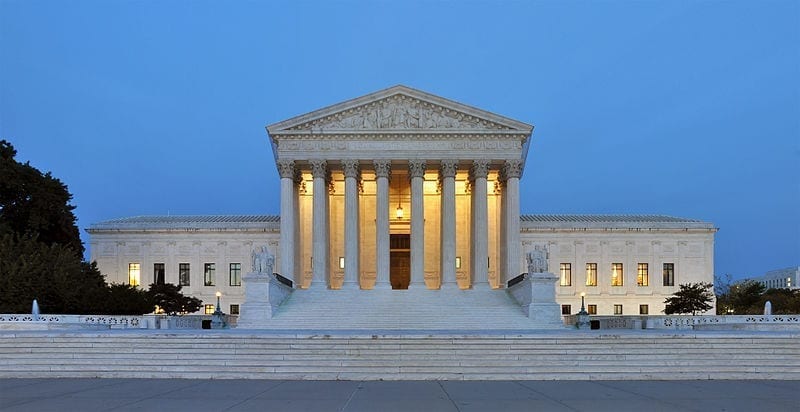The Supreme Court justified its decision by looking back over 100 years in history.
In an effort to curb the spread of coronavirus, the U.S. Supreme Court is postponing oral arguments indefinitely.
According to Reuters, the affected cases include a high-profile dispute over President Donald Trump’s tax records. Hearings were initially scheduled to run between March 23rd and April 1st. But the Supreme Court closed its building to the public last Thursday, then announced it’d be pushing oral arguments to some time in the future.
A spokesperson for the court said the move was meant to “[keep] with public health precautions,” which have, broadly, restricted where and when people may gather and for how long. The National Guard has been deployed in some states, with parts of California and New York now under shelter-in-place orders.
Reuters reports that eleven arguments—encompassing a total of fourteen cases—have been affected by the court’s closure. Three of the cases involve the president, one of which is Trump’s last-ditch appeal to prevent his financial records from being handed over to the House of Representatives.

“The court will examine the options for rescheduling those cases in due course in light of the developing circumstances,” the spokesperson said.
Interestingly, the court’s closure isn’t unprecedented—and the justices were quick to cite history as a guide. The last time the Supreme Court shut down, says CNBC, was during the Spanish Flu epidemic of 1918. Before that, the court had put off cases for yellow fever outbreaks in the late 18th century.
“The Court’s postponement of argument sessions in light of public health concerns is not unprecedented,” the court said. “The Court postponed scheduled arguments for October 1918 in response to the Spanish flu epidemic. The Court also shortened its argument calendars in August 1793 and August 1798 in response to yellow fever outbreaks.”
Unlike the Spanish Flu, which infected people irrespective of age, coronavirus—often called COVID-19—disproportionately affects older adults, as well as individuals with pre-existing health conditions. Globally, COVID-19 has exhibited more aggressive symptoms and markedly higher case mortality rates among the elderly.
Six current justices—including Chief Justice John Roberts and Justices Clarence Thomas, Ruth Bader Ginsburg, Stephen Breyer, Samuel Alito, and Sonia Sotomayor—are above sixty years of age, making them particularly vulnerable to coronavirus.
Tom Goldstein, an attorney who’s “frequently” appeared before the justices, told Reuters that the decision was likely made out of concern for the bench’s health.
“Ultimately, it may have bene out of concern for the justices’ own health, particularly given that the virus is so dangerous to the elderly,” Goldstein said.
Goldstein, notes Reuters, was due to represent Google in a case initially slated to be heard on March 24th; it involves a dispute with Oracle over software copyrights.
Sources
Supreme Court postpones arguments because of coronavirus, citing Spanish flu precedent
Supreme Court postpones oral arguments amid coronavirus pandemic
These Charts Break Down Who Is Most At Risk Of Dying From The Coronavirus
United States Supreme Court Justices
U.S. Supreme Court postpones arguments amid coronavirus worries


Join the conversation!